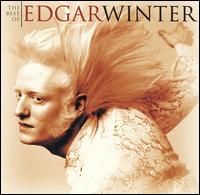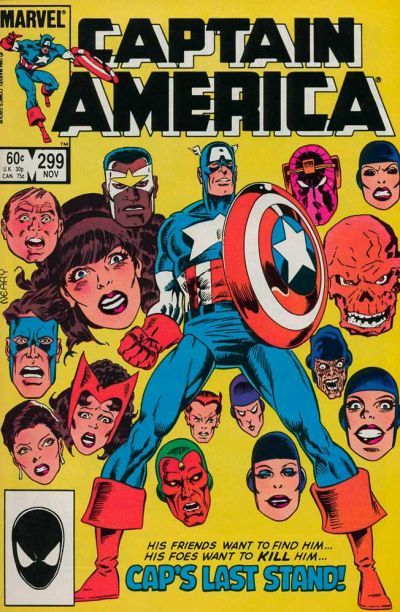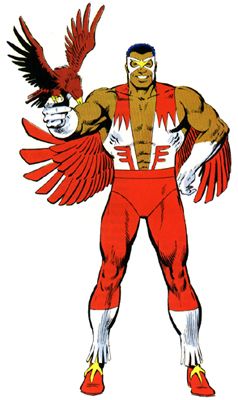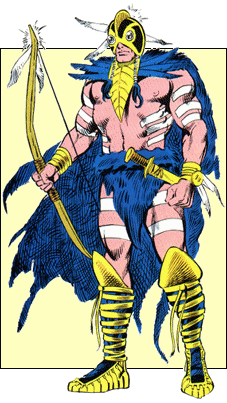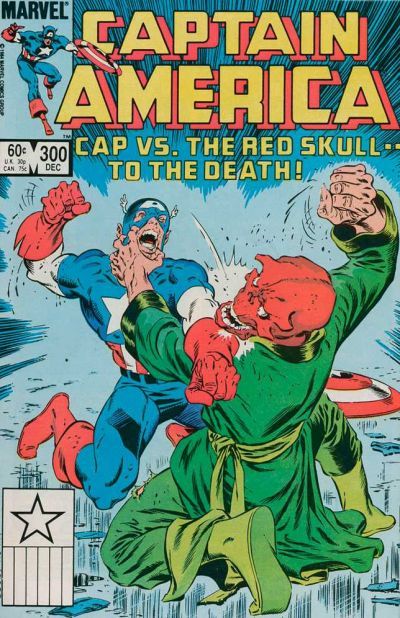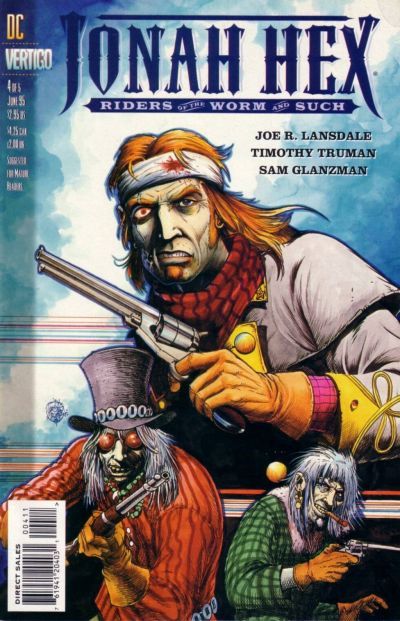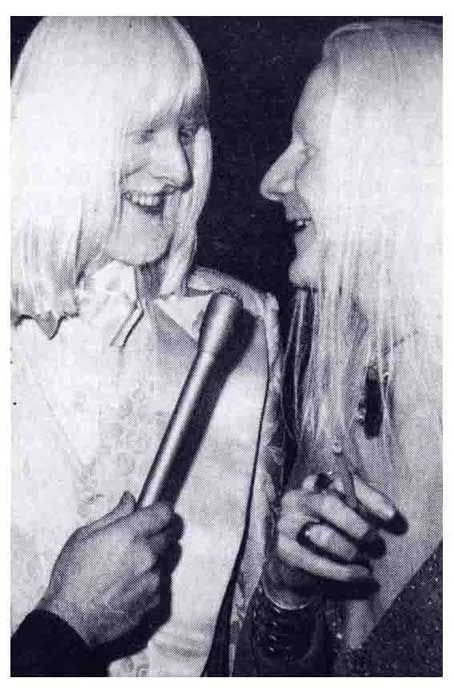This is the ninety-fourth in a series of examinations of comic book urban legends and whether they are true or false. Click here for an archive of the previous ninety-three. Click here for a similar archive, only arranged by subject.
Let's begin!
COMIC URBAN LEGEND: J. M. DeMatteis planned to kill Captain America during his run on the title.
STATUS: True
Reader Garrie Burr asked me this one just last week, which was quite topical considering the death of Captain America in last week's Captain America #25. Burr asked:
I cannot recall where I saw this, but I remember that the end of DeMatteis' long run on Captain America was supposed to wind up with Steve Rogers dead and a new character taking up the Red-White-and-Blue. An urban legend?
I posed the question to the man himself, J.M. DeMatteis, and he offered me this extremely interesting story:
It's true. My last year on the book was one long ongoing saga involving Captain America's final battle with the Red Skull. It was to reach a turning point with a double-sized CAP #300 in which the Red Skull dies and Cap, after (at the time) forty-plus years of solving problems with his fists, begins to wonder if there's another way to live his ideals and change the world. In the proposal I presented to my editor, the late, great Mark Gruenwald, Cap was, ultimately, going to disavow violence as a tool for change-essentially rejecting the entire superhero mindset-and start working for world peace. (Keep in mind that this was at the height of the Reagan "evil empire"/cold war period, so it was a pretty radical idea for its day.)
My plan was to have the world turn against Cap, his own country rejecting him as un-America, other world leaders shunning him: The only allies he was going to find in his quest for global change would be the Sub-Mariner and Doctor Doom. This was the period when Jack Monroe-aka Nomad, the Bucky of the 50's-was Cap's partner...and Jack, with his cold war mentality, would be manipulated by Cap's enemies. In the climax, as Cap speaks at a rally of his few remaining supporters, Nomad (perched on a roof across the way) assassinates him. Only then, with Cap dead, would the world realize what they had. In tribute to Cap, all nations of the world would lay down their weapons for one hour. One hour of peace on Earth.
The plan was then to find Cap's replacement. I toyed with the idea of Sam Wilson, the Falcon, becoming the new Cap
...but (as I recall-and, let's face it, it's been a while) I finally settled on Black Crow, a Native American character I'd used in the book, as the new Captain America.
Who better to represent America than one of the first Americans?
Gruenwald approved all this, I wrote the double-sized Cap #300, went ahead and plotted the next two or three stories in the arc; but editor-in-chief Jim Shooter, hearing what we were planning, shot the idea down. Jim said, essentially, that my idea violated Cap's character, that Steve Rogers would never act like that.
Cap #300 was then cut down to a normal-sized issue and substantially rewritten, I think by Jim himself-or perhaps Gruenwald under Jim's direction. (Which is why I used a fake name in the credits and quit the book.) At the time I was angry but, in retrospect, I totally understand Shooter's POV. Jim-a brilliant editor and a guy who really helped me along in the early days of my career-was the custodian of the Marvel Universe: he had to protect the characters as he understood them. As noted, my idea was extremely radical for its day: I mean-Captain American involved in political controversy and then assassinated? How could anything like that every happen?
Just goes to show you how times change.
Ha!
Pretty darn interesting story, yes?
COMIC URBAN LEGEND: Musician brothers sued DC over the use of their likeness in a Jonah Hex comic book.
STATUS: True
In 1995, DC released a sequel to the popular Joe R. Lansdale/Timothy Truman mini-series, Jonah Hex: Two-Gun Mojo, titled Jonah Hex: Riders of the Worm and Such.
In the comic, Jonah faces off against two brothers who were half-human, half-worm creatures with green tentacles sprouting from their chests. Their names?
Johnny and Edgar Autumn.
This was not taken well by albino brothers, Johnny and Edgar Winter.
Edgar Winter is famous for his song, "Free Ride."
The brothers claimed that it was defamation for DC to depict them in the comic as evil killers, and when that claim was thrown out, they sued DC for violating their publicity rights.
The first case was thrown out in the late 90s (Comic Book Legal Defense Fund was a great help), and the second one was dismissed in 2003 (click here for a nice description of the first case and here for a nice description of the second one).
The judge essentially gave Lansdale and Truman protection under the theory that, although clearly based on the musicians, "the books do not depict plaintiffs literally," Justice Ming Chin wrote for the unanimous court. "They are distorted for purposes of lampoon, parody, or caricature."
In an amusing side-note, in an interview with Andy Diggle awhile back, Alan Grant explains how the lawsuit affected his writing as well:
At the moment I believe that DC is being pursued by Johnny and Edgar Winter. They're blues guitarists who were also pop stars during the late Sixties and early Seventies. They're albinos, they've got white hair and pink eyes, and they're shit-hot blues guitarists. I've got one of their albums still around. Anyway, Joe Lansdale - I think in a Jonah Hex comic - as a tribute to the Winter Brothers, used a pair of villains called the Winter Brothers who were - and I quote, I think - "Pig-fucking cannibals". (laughter) And of course when this came out in print and the Winter Brothers saw it, they failed to see it as the homage which Joe Lansdale meant it, and they're now suing DC.
I got a call from the editor of Lobo to say that he was in a bit of a quandary because in an issue of Lobo that I did with Martin Emond, I had called them Johnny and Edgar Summer, and although they weren't cannibals and they weren't pig-fuckers, they were remarkable mainly for their stupidity... (laughter) But the DC lawyers had sent a memo around asking everybody if they had ever mentioned these brothers, and to let them know. So they had to be handed over, and since then Lobo scripts have been subjected to quite a lot of scrutiny.
Free speech is a fine thing, I believe!
COMIC URBAN LEGEND: The last issue of Marvel Comics' Star Wars sold so poorly that it was not even released on newsstands.
STATUS: False
Reader John Kuczaj wrote in with the following urban legend awhile back (John has gotten a bunch of his answered!):
Sales on Marvel's Star Wars series were so poor that the final issue of the book (#107) never hit the newsstands and was only distributed to the fledgling direct-only market, making the book a rare collectible.
John is partially correct, in that Star Wars #107 is, in fact, a pretty collectible book, in that it is a lot rarer than other Star Wars comics, but the reasons are simply as John mentions in his own urban legend, that sales of the comic were so poor that the book just does not exist in the same quantities of other Star Wars comics.
Marvel's Star Wars line was quite popular for many years, but a couple of years after the release of the "final" Star Wars film, the comic stopped selling as well as it once did. By 1986, the comic was coming out bi-monthly, and finally, sales grew too low for the license to be worth it to Marvel.
However poor the sales were, though, the book was released on the newsstands. I discovered this by hunting down a newsstand copy myself personally.
Just to make sure, though, that I did not have some flukish copy, I checked with the great Web Guide to Star Wars Comics, which lists a Direct Market AND a Newsstand comic existing, with photos of both.
Here is the newsstand edition.
So there you go, while it IS a collectible, it wasn't so rare that it did not exist on newsstands.
Thanks, John, for the suggestion!
Okay, that's it for this week!
Feel free to drop off any urban legends you'd like to see featured!

